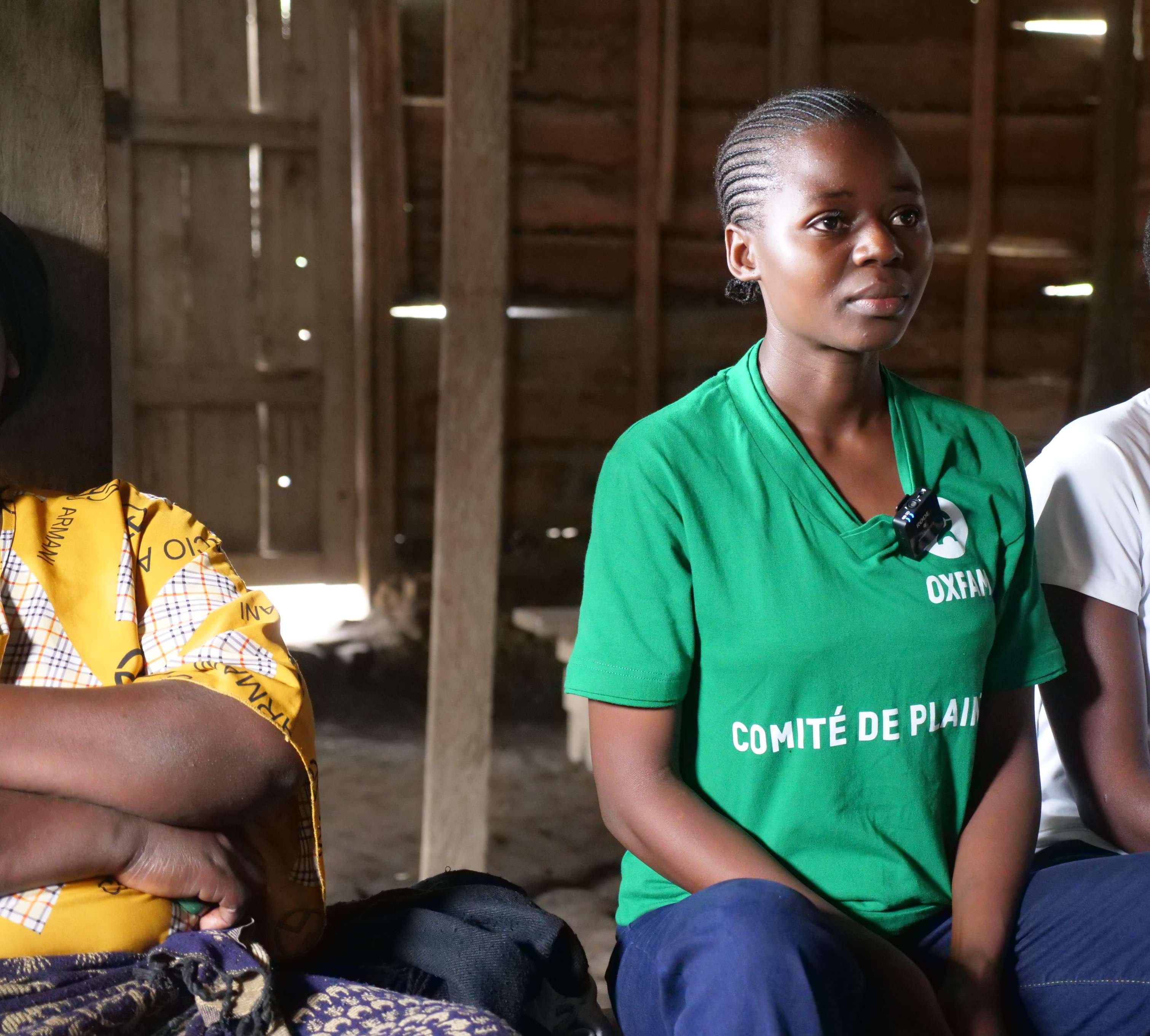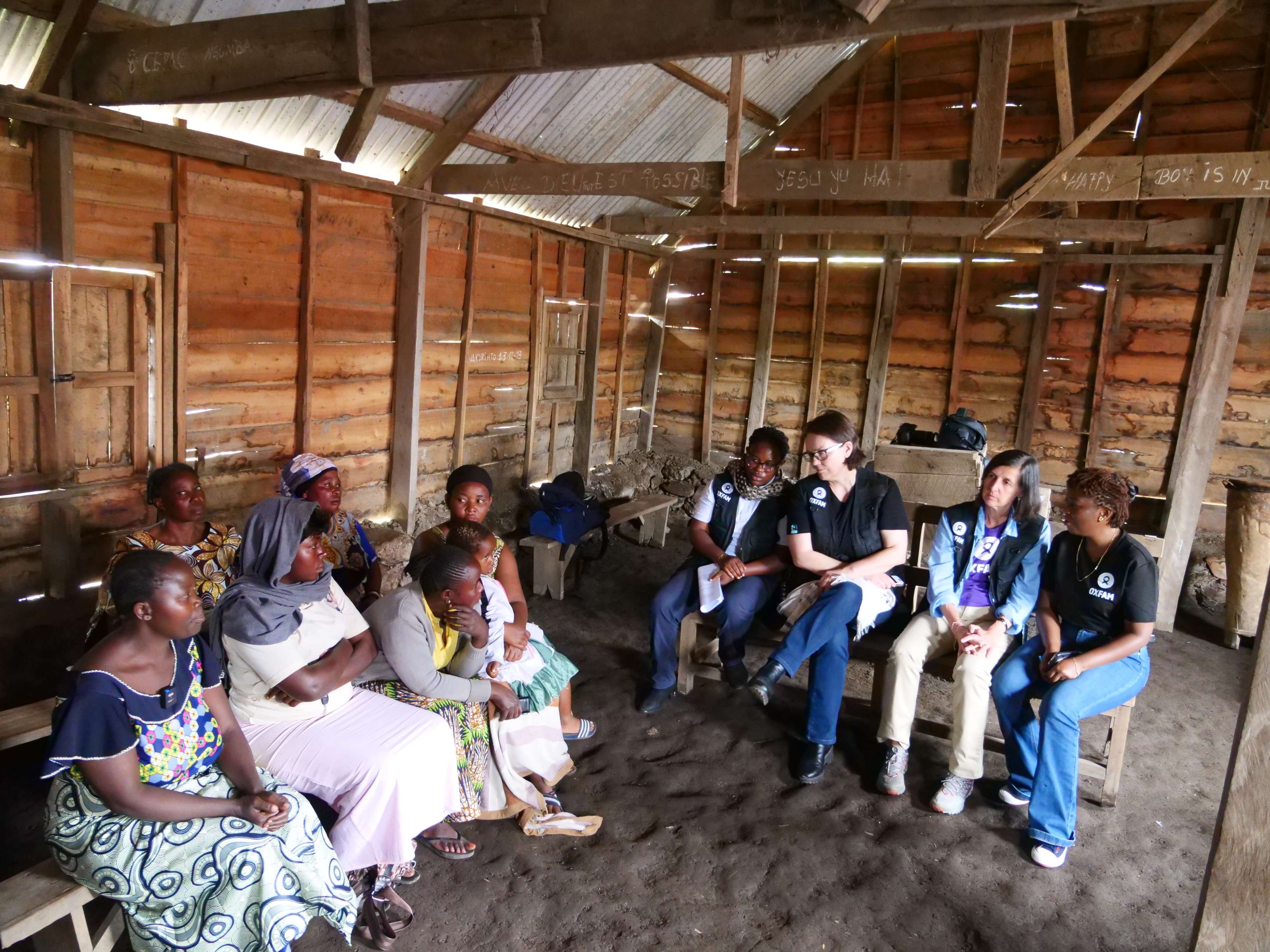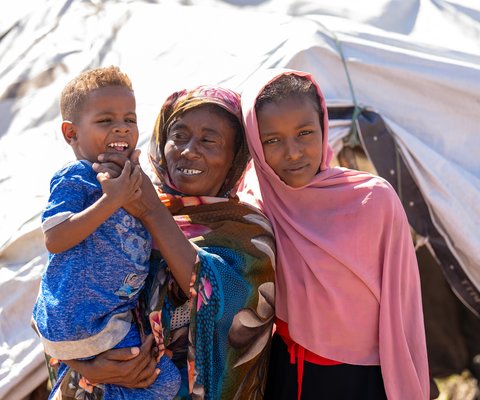Oxfam’s CEO and President Abby Maxman shares her experience traveling to DRC, where crisis and conflict have been exacerbated by cuts to humanitarian assistance.
On a trip to the Democratic Republic of Congo (DRC) in July, I met Francine—a 24-year-old community volunteer who had been displaced multiple times by conflict.
When I met Francine, she had recently returned to her old village after being forced to flee a displacement camp in eastern DRC. She found her village pillaged and many of her neighbors killed. She had no support and no resources at a time when she needs them most.
I asked Francine about her aspirations and hopes. She described the desperation of young women around her, resorting to survival sex work. All Francine wants is a chance to build a life with dignity and security, to start a small business to support herself, and avoid the same fate.

When the wealthiest nation in the world turns its back
Francine’s story is all too common in the DRC.
Earlier this year, women, youth, and families—many of whom have been displaced numerous times over decades of conflict—were forcibly displaced once again after fighting escalated in the eastern part of the country. In the communities I visited, hundreds, if not thousands of people showed up just for a chance to share their stories of struggle and resilience.
Some of the people I met on my trip have never known anything but conflict. And when they needed support the most, the wealthiest nation in the world turned its back.
Until recently, the U.S. funded 70 percent of humanitarian assistance in eastern DRC. U.S.-funded programs were providing essential resources for people affected by conflict, including clean water and sanitation, hygiene and dignity kits, medical response to preventable diseases, support for women and girls who had experienced sexual violence, and seeds and agricultural tools for local farmers. When the Trump administration cruelly and abruptly dismantled the U.S. Agency for International Development (USAID) in February of this year, resources for these lifesaving programs were cut off nearly overnight, just as the needs were escalating.
The consequences for Francine and millions of others have been catastrophic.
Impact of cuts to lifesaving aid
I want to be clear: the decision to cut off lifesaving humanitarian and development aid is a profound moral failure by the U.S. government. At a time when Congolese desperately need peace and basic support, they have been met with betrayal.
The Trump administration claims that cuts to foreign assistance are not leading to harm or loss of life. The data and evidence, including what I saw for myself in DRC, tells a different story. In fact, from January to July of this year, more than 35,000 suspected cholera cases and at least 852 related deaths had been reported—an average of more than four deaths every day and a 62 percent increase compared to 2024.
In some communities where the USAID projects that were supporting access to clean water and sanitation were cut, 500 people are sharing a single water tap.
Now, the country and its people are reeling from a full-blown health emergency with outbreaks of Ebola and cholera, internal displacement, and a lack of access to basic resources.
“They have survived the bombardments, but cutting off assistance could lead to more deaths than the war,” said Kamara Wabomundu, an agent at the Goma Health Zone Central Office.
After the cuts were announced, Oxfam’s local partner organizations lost funding overnight. Humanitarian work was thrown into chaos. Lives were left hanging in the balance.
People like Francine don’t want to be reliant on aid. For Oxfam and our partners, our mandate is to help people in their hour of need, while also addressing the core reasons that need exists.

Addressing the causes and consequences
As the Oxfam Country Director in the DRC Dr. Manenji Mangundu said, “We need an immediate injection of funds, and all warring parties to commit to a permanent ceasefire and allow aid to flow freely. The world cannot look away.”
Local partners are continuing their lifesaving work amid the crumbling aid system, armed conflict, and health crisis. I met many of these brave local leaders doing impactful work to support others and fight for change by providing water, food, sanitation, and hygiene kits, and calling out the scourge of gender-based violence in conflict—often at great risk to their own safety. Since February, Oxfam and the partners we work with have reached more than 150,000 people, but as was evident during my visit, so much more remains to be done.
Despite the challenges facing people in the DRC, they are working to support others and fight for change. They want their stories to be told to help hold their leaders accountable for ending the conflict and providing the support people need to live with dignity and security. At the same time, Oxfam is pushing the U.S. government to honor the aid commitments it has already made, and to continue funding assistance around the world at levels and based on needs, not politics.
In my 30+ years of working with communities living through conflict, I know that timely aid can mean life or death. From the DRC, to Gaza, to South Sudan, to Ukraine and around the world, people deserve better, and the richest country in the world can do better.
We must also open ourselves up to imagine what it would mean to live the experience of someone like Francine. We can ensure voices like hers matter by holding ourselves and our country’s leadership accountable for being the global citizens that humanity deserves.
Because when we invest in people and communities around the world, and in responsible aid for people experiencing crisis, we build a more just, sustainable world for everyone.



